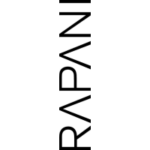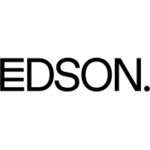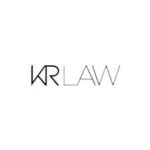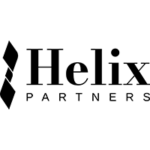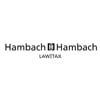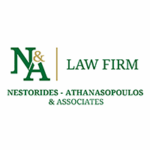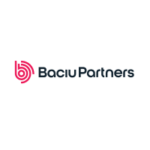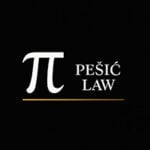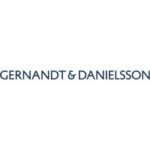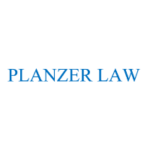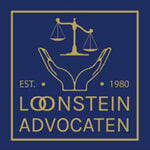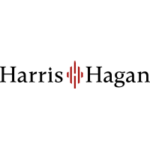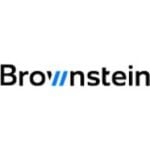-
What is the legal definition of gambling?
Brazilian law does not define “gambling” as a general concept. The historical prohibition focuses on “games of chance” (contravenções penais), while modern fixed‑odds betting is regulated as a lottery modality. Law No. 14,790/2023 instead defines key terms for the fixed‑odds betting regime, such as: “bet” (an act through which a value is risked in expectation of a prize); “fixed odds” (the multiplier set at the time of the bet); and “online game” (where the outcome is determined by a future random event generated in accordance with the game rules).
Skill‑based games are treated separately: under SPA/MF rules, activities whose outcomes depend primarily on players’ skills (eg, poker) are not treated as virtual events in fixed‑odds betting. By contrast, the Misdemeanours Law (Decree‑Law No. 3,688/1941) prohibits operating games of chance and imposes fines on participants.
-
What legislation applies to gambling? Please provide a summary of the legal/regulatory framework.
- Decree‑Law No. 3,688/1941 (Misdemeanours Law): general prohibition on “games of chance”.
- Law No. 13,756/2018: created fixed‑odds sports betting as a lottery modality.
- Law No. 14,790/2023: comprehensive framework for fixed‑odds betting, including online game events, KYC/age controls, payment and bettor rights.
- SPA/MF Normative Ordinance No. 1,330/2023: general conditions, bettor rights/obligations, PLD/FTP baseline, responsible gambling and market structure.
- SPA/MF Ordinance No. 827/2024: rules and conditions to obtain authorisation; capital, governance and integrity.
- SPA/MF Ordinance No. 722/2024: technical and security requirements; certification; data localisation/replication; SIGAP data feeds.
- SPA/MF Ordinance No. 1,143/2024: AML/FTP policies, risk assessment, SISCOAF reporting and governance requirements.
- SPA/MF Ordinance No. 1,231/2024: responsible gambling tools and comprehensive advertising/marketing rules.
- Horse‑race betting: Law No. 7,291/1984 and Decree No. 96,993/1988.
-
Which body/ies regulate gambling?
- Secretariat of Prizes and Betting (SPA), Ministry of Finance: licensing, rule‑making, supervision and sanctions for fixed‑odds betting.
- Ministry of Agriculture, Livestock and Food Supply: horse‑race betting (racetracks, agents).
- COAF (Financial Intelligence Unit): AML/FTP oversight and sanctioning for reporting failures.
-
Are licences available? If so: a) What is the duration of a licence? b) What types of licences are available? c) Are there different types of licences for B2C and B2B operators? d) Do software suppliers need to be licensed?
Yes. SPA issues fixed‑odds betting authorisations to Brazilian companies (limited or corporation) with headquarters and management in Brazil. Each authorisation lasts five years and can cover up to three brands in the operator’s electronic channels. There is no separate federal licensing regime for B2B suppliers; the B2C operator remains responsible for all brands/technology used. White‑label models are not permitted in practice because each brand must be owned and controlled under the licensee’s authorisation portfolio.
-
Are any types of gambling products prohibited?
- Casinos and gaming machines remain prohibited under public‑order rules (outside the online game event regime).
- Commercial bingo (save for narrow philanthropic/sweepstake contexts) is prohibited.
- Online bingo is prohibited.
- Poker and other genuine skill‑based games are lawful and unregulated as gambling, provided monetary prizes are not awarded in a way that transforms them into chance‑based games.
-
What is the headline application procedure? Please include any eligibility and other application requirements, including approximate application costs and any need to establish a local presence.
Applications may be filed at any time via the SPA’s SIGAP platform. The SPA evaluates legal, tax, labour, financial and technical compliance, as well as the reputation and experience of controllers and administrators. Once a dossier is complete, SPA will notify the applicant to pay the authorisation fee; payment must occur within 30 days. Key eligibility and documentary requirements include:
- Brazilian entity (LTDA or S.A.) with headquarters/management in Brazil; a Brazilian must hold at least 20% of the capital.
- Corporate purpose must include “Exploração de Apostas de Quota Fixa” (CNAE 9200‑3/99).
- Capitalisation & financials: paid‑in capital of BRL 30 million; net equity ≥ BRL 30 million; and a BRL 5 million reserve. For additional authorisation acts (beyond three brands), proportional capital/equity/reserve add‑ons apply.
- Governance and key functionaries: designate directors for (i) accounting/finance, (ii) data protection, (iii) betting‑system security, (iv) integrity & compliance, (v) customer service & ombuds; functions (i)–(v) cannot be cumulated.
- Experience & integrity: at least one controller with proven gaming/lottery experience; administrators must have either three years’ relevant experience or higher education in a compatible field; present reputation, origin‑of‑funds and criminal‑record certificates.
- Customer service in Portuguese, 24/7 (online and phone), with an ombuds function; channel for public‑sector demands.
- Membership/association with an independent sports‑integrity monitoring body; adoption of integrity policies.
- Contracted Brazilian financial/payment institutions (Bacen‑authorised) to hold transnational accounts for bettors and operators.
- System certification by a SPA‑recognised lab; continuous validity and annual revalidation; certificate updates upon any change to critical components.
- Technical/IT obligations (see Q11) and secure data feeds to SPA via SIGAP.
Costs: a fixed authorisation grant of BRL 30 million per authorisation act (up to three brands per act).
-
Do individuals within the business need to be personally licensed or authorised? If so, please provide headline requirements.
There is no separate personal licence for individuals. However, senior managers and controllers are vetted. Administrators must meet integrity thresholds and show at least three years’ relevant experience or an appropriate university degree. Disqualifying conditions apply to controllers/managers (eg, links to professional sports bodies, specific criminal convictions or public‑procurement ineligibility).
-
Is advertising of gambling permitted and, if permitted, how is it regulated?
Advertising of gambling in Brazil is permitted, but strictly regulated under Ordinance SPA/MF No. 1231/2024 and the Advertising Self-Regulation Code (CONAR), Annex X – Advertising of Bets with Fixed Odds.
Under Ordinance 1231/2024, operators and marketing agents must ensure that all promotional content complies with responsible gambling, consumer protection, and public order principles. The Ordinance establishes mandatory content, format, and placement requirements, including:
- Mandatory responsible-gambling and age warnings: all materials must display “+18” and harm-risk notices, occupying at least 10% of the advertising area or duration, and, where feasible, both spoken and written.
- Prohibited content: advertisements must not mislead, glamorize gambling, or portray betting as a source of financial gain, social status, or professional success.
- Audience restrictions: marketing may not target minors, self-excluded individuals, or other vulnerable groups.
- Direct marketing controls: any personalized or promotional outreach requires prior opt-in consent and must offer a clear opt-out mechanism.
- Prohibition of sexualized or offensive content, ensuring that materials preserve dignity and moderation.
In addition, CONAR Annex X reinforces these principles through self-regulatory standards for ethical and socially responsible gambling advertising. It mirrors the Ordinance’s mandatory warnings, prohibits the use of celebrities appealing to minors, and requires that all advertising include responsible-gambling messaging and contact information for help services.
Operators remain jointly and severally liable for any advertising conducted by affiliates, influencers, or third-party platforms under their brand.
-
Are marketing affiliates permitted? If so, are they licensed or regulated?
Yes. “Affiliates” are expressly defined in SPA/MF rules. Operators must keep written Portuguese contracts, ensure affiliates’ compliance with all advertising and responsible‑gaming rules, state whether subcontracting is allowed (liability remains with the operator), and implement opt‑out controls and suppression lists (eg, for self‑excluded bettors).
-
What are the penalties for offering, facilitating or marketing unlawful gambling, and can the gambler be penalised for participating in unlawful gambling?
Operating unlicensed gambling activities in Brazil constitutes a criminal misdemeanour under Article 50 of the Misdemeanour Act (Decree-Law No. 3,688/1941). The provision penalises anyone who “establishes or operates a game of chance in a public place or accessible to the public” with imprisonment from three months to one year and a fine, and authorises the closure of the establishment and seizure of materials used for gaming.
Players and bettors who participate in such unlawful gambling activities, whether in person or online, may also be subject to monetary fines, although participation alone does not carry imprisonment.
With the legalisation and regulation of fixed-odds betting, Law No. 13,756/2018 and its subsequent amendment by Law No. 14,790/2023 (formerly Bill 3,626/2023) introduced a dual system of penalties distinguishing criminally unlawful gambling from administrative breaches by licensed operators:
- Unlicensed or irregular operation: constitutes a serious administrative offence, subject to sanctions imposed by the Secretariat of Prizes and Betting (SPA/MF), including:
– Warnings;
– Monetary fines of up to BRL 2 billion per infraction or up to 20% of the operator’s revenue (whichever is higher), capped at the operator’s gross revenue for the prior fiscal year;
– Temporary suspension or revocation of the betting licence;
– Prohibition on obtaining new authorisations;
– Disqualification of administrators and board members for up to 20 years; and
– Debarment from public tenders and contracts under federal procurement rules. - Failure to comply with anti-money laundering (AML) and counter-terrorism financing (CTF) obligations may trigger parallel penalties under Law No. 9,613/1998 (the AML Law), in addition to the SPA’s sanctioning powers, including reporting obligations, asset freezing, and administrative fines imposed by the competent authority (COAF).
In summary, operators face both criminal and administrative exposure, while bettors are only subject to fines for participating in unlicensed or illegal gambling. Licensed operators who comply with the SPA’s regime are shielded from criminal liability but remain fully exposed to severe administrative and AML sanctions for breaches of regulatory or integrity standards.
- Unlicensed or irregular operation: constitutes a serious administrative offence, subject to sanctions imposed by the Secretariat of Prizes and Betting (SPA/MF), including:
-
Briefly detail key requirements for licensees.
Licensees under Law No. 14,790/2023 must comply with a detailed regulatory framework issued by the Secretariat of Prizes and Betting (SPA/MF), covering technical certification, operational integrity, responsible gambling, and consumer protection. The core obligations are set forth in Ordinances SPA/MF Nos. 722/2024, 827/2024, 1207/2024, and 1231/2024.
A. Technical and Operational Systems – Ordinance SPA/MF No. 722/2024
Operators must maintain robust, transparent, and auditable systems ensuring regulatory oversight, bettor protection, and data security.
Key obligations include:
- Data hosting and localisation: Systems and data centres must be located in Brazil. Hosting abroad is permitted only with:
– Prior authorisation and explicit consent for data transfers;
– Full replication of databases in Brazil with continuous synchronisation;
– Use of ISO 27001-certified or equivalent infrastructure. - System certification: Betting systems (sports and online games) require SPA-accredited lab certification, annual revalidation, and re-certification after critical updates.
- Domain and control: Use of the “.bet.br” domain is mandatory. Systems must support SPA’s remote suspension of markets, terminals, or accounts on demand.
- Data and audit:
– Maintain comprehensive logs for all operations and user activity;
– Retain data for at least five years and ensure export in XML/XLS/CSV formats;
– Daily and monthly submissions to SPA via the SIGAP data model;
– Continuous remote and on-site inspection access for SPA auditors. - Integrity and anti-fraud controls:
– Detection of VPN/proxy use, jailbroken/rooted devices, and man-in-the-middle (MITM) risks;
– Session geolocation checks every 30 minutes;
– Monitoring of large bets, wins, or abnormal activity, with granular audit trails of staff actions.
B. KYC, Bettor Identity, and Financial Safeguards – Law No. 14,790/2023 and Ordinance No. 722/2024
To protect the financial system and prevent fraud and money laundering:
- Account verification: Requires facial recognition and identity validation prior to activation, with multi-factor authentication (MFA) and automatic logout after inactivity.
- Account uniqueness: Only one active account per brand per bettor is allowed.
- Transparency: Bettors must accept terms of service, privacy policy, and data-sharing consent with the regulator.
- Financial institutions: All payment processing must occur through Brazilian institutions authorised by the Central Bank (Bacen).
- Fund segregation: Bettor funds must be held in a segregated fiduciary account, forming a separate patrimony protected from the operator’s assets.
- No peer-to-peer transfers or wallet sharing between bettors.
C. Integrity, Governance, and Anti-Manipulation – Law No. 14,790/2023 and Ordinance SPA/MF No. 1207/2024
Integrity and good governance are central to the regulatory model.
- Integrity monitoring: Operators must join or cooperate with a recognised integrity body that monitors and reports suspicious betting patterns or match-fixing.
- Nullity of compromised bets: Bets linked to manipulation are void, and prizes may be suspended during investigations.
- Corporate integrity programme:
– Ordinance 1207/2024 mandates compliance and integrity programmes addressing ethical conduct, risk assessment, due diligence on partners, and whistleblower protections.
– A designated integrity officer must report directly to senior management and maintain coordination with sports regulators and the SPA.
D. Customer Service and Ombudsman – Ordinance SPA/MF No. 827/2024
Operators must ensure continuous and transparent consumer assistance:
- 24/7 service, free of charge, available in Portuguese, via electronic and phone channels.
- Appointment of a dedicated ombudsman to handle complaints, mediation, and escalation.
- Mandatory disclosure on websites and physical points of sale of the operator’s legal name, licence number, authorisation data, and SPA contact information.
- Complaint tracking and reporting: Operators must respond within regulatory timeframes and submit quarterly reports to SPA on complaint volume and resolution metrics.
E. Consumer Protection, Responsible Gambling, and Advertising – Ordinance SPA/MF No. 1231/2024
This ordinance complements the above by imposing content, disclosure, and responsible-gambling requirements to protect consumers and promote safe play.
Highlights include:
- Responsible gambling obligations: Mandatory display of 18+ symbols and harm-risk warnings, occupying at least 10% of advertising space or duration, and, where feasible, both spoken and written.
- Prohibitions: Advertising may not:
– Mislead or glamorise gambling;
– Present betting as a form of income, investment, or social success;
– Use sexualised content or target minors and vulnerable groups. - Direct marketing: Must operate on an opt-in basis with simple opt-out functionality.
- Transparency: Websites must feature clear, prominent information on responsible gambling tools, self-exclusion mechanisms, and support contacts (e.g., CVV, CAPS).
- Operator liability: Licensees are fully responsible for all third-party, affiliate, and influencer advertising conducted under their brand.
F. Summary
Collectively, Ordinances 722/2024 (technical), 827/2024 (customer service), 1207/2024 (integrity), and 1231/2024 (consumer protection and advertising) — grounded in Law No. 14,790/2023 — establish a comprehensive compliance framework requiring:
- Secure, certified systems;
- Transparent financial and player operations;
- Robust integrity and governance standards;
- Responsive consumer protection; and
- Strict responsible-gambling and advertising rules.
Compliance with these instruments is a precondition for obtaining and maintaining a betting licence and subject to continuous supervision by the Secretariat of Prizes and Betting (SPA/MF).
- Data hosting and localisation: Systems and data centres must be located in Brazil. Hosting abroad is permitted only with:
-
Briefly detail key anti-money laundering requirements.
- Adopt, document and annually update AML/FTP policies approved by administrators; align to enterprise risk profiles; publish employee‑facing versions.
- Annual internal risk assessment covering bettors/users, staff/third parties, products/services and channels/technology; define categories of risk and enhanced measures for higher‑risk situations.
- Know Your Customer (KYC): identify, qualify and risk‑classify bettors/users; validate data; assess economic capacity; screen for Politically Exposed Persons (PEPs) and close associates; keep records current.
- Know Your Employee/Partner (KYE/KYP): vet and periodically validate staff, partners and service providers; retain records for at least five years after relationship ends.
- Monitoring, selection and analysis to identify suspicious activity; SISCOAF enrolment and timely reporting to COAF; maintain detailed operational and administrative records.
- Annual report to SPA (by 1 February) on AML/FTP good practices adopted in the prior year; ongoing training and culture programmes.
-
Briefly detail key responsible gambling (or safer gambling) requirements.
- Published RG policy; regular educational campaigns; systematic communication to bettors about risks and help channels.
- Mandatory RG section on the platform with self‑assessment, “signs of risk”, time/budget history, and access to tools.
- Tools: deposit/spend/loss/time limits; alerts or blocks by session time; pause periods; self‑exclusion (temporary or permanent); critical‑risk users must be suspended according to the operator’s RG policy (with clear criteria).
- Prominent 18+ and harm‑risk warnings on all ads (minimum 10% of the creative; spoken and written where feasible).
- Strict prohibitions for minors, vulnerable groups and certain insiders (eg, operator staff, sports participants, regulators).
- Ban on facilitating credit/factoring to bettors; opt‑in/opt‑out controls for direct marketing; suppression of ads to self‑excluded users.
-
Briefly detail shareholder reporting and approval threshold(s).
Any merger, spin‑off, transformation or direct/indirect change of control must be notified to SPA within 30 days. SPA may review the authorisation in up to 150 days and can open a specific proceeding to reassess the licence terms. Pre‑filing consultations are allowed to confirm that proposed changes will not trigger a review.
-
Briefly detail the regulator’s enforcement powers, including sanctions.
SPA may inspect on site or remotely at any time; require data, pause markets, suspend operations, and impose administrative sanctions (warnings, hefty fines, suspensions, revocation, debarment and managerial disqualification). AML breaches are also sanctionable under the AML Law. The sanctioning procedure is regulated by a specific SPA ordinance.
-
What is the tax rate?
- Fixed‑odds betting GGR allocation: 88% to operator costs/maintenance; 12% to social destinations (education, safety, sports, health, etc).
- Players: 15% Personal Income Tax (IRPF) on net annual winnings from fixed‑odds bets (above the exempt threshold).
- Corporate taxes: IRPJ/CSLL and PIS/COFINS apply under Brazil’s general tax regimes (actual profit vs deemed profit).
- Horse‑race bettors: 30% withholding on prizes; horsemen/breeders/jockeys: 15% withholding (per Decree No. 9,580/2018).
-
Are there any proposals for changing gambling laws and regulations in the next 12-24 months? If so, please provide an overview of the proposed changes and likely timing.
- Bill of Law No. 2,234/2022 (ex‑442/1991) — would legalise broader games of chance (casinos, bingo, machines, jogo do bicho, online gaming).
- Supreme Court docket — ADI 7721 debates broad validity/impacts of Law No. 14,790/2023; interim measures curbed advertising to minors and restricted use of certain social‑assistance funds for betting; SPA issued Normative Instruction No. 22/2025 to operationalise protections.
- Municipal lotteries — ADPF No. 1212 challenges local laws enabling municipal fixed‑odds operations; outcome may shape federal/state/municipal competences.
-
What key regulatory developments are proposed or on the horizon in the next 12-24 months?
Brazil’s Secretariat of Prizes and Betting (SPA/MF) has published its Regulatory Agenda for 2025–2026, setting out the roadmap for the continued implementation of Law No. 14,790/2023. The agenda outlines 13 priority initiatives to be developed over seven trimesters, including quarterly public consultations and formalisation of rules after each round. These initiatives aim to consolidate Brazil’s newly established betting market and expand its regulatory infrastructure.
1. National Self-Exclusion and Barred Bettors System
The SPA plans to launch a centralised national self-exclusion and barred-bettors platform, enabling operators to verify excluded players in real time. Licensees will need to integrate via API and align privacy and consent mechanisms with cross-operator data sharing.
2. B2B Regulation and Supplier Registration
A key focus will be the regulation of the B2B ecosystem, including online game providers, integrity services, and technology vendors. The new framework is expected to introduce registration, suitability verification, and reporting obligations for suppliers serving authorised operators.
3. Integrity and Data Infrastructure
The creation of a National Betting System will consolidate data flows between operators and the SPA, building on the existing SIGAP platform. The system will support real-time supervision, risk monitoring, and cross-platform integrity analytics, enhancing the prevention of match-fixing and fraud.
4. Consumer Protection and Responsible Gambling
Following the adoption of Ordinance No. 1231/2024, further measures are expected to strengthen responsible gambling tools, including expanded self-limiting functionalities, mandatory visibility for help resources, and improved protocols for identifying and assisting at-risk bettors.
5. Advertising and Commercial Promotions
The SPA is reviewing the rules for commercial promotions and advertising practices, with a view to aligning them with responsible gambling standards and updating procedures for authorisation, disclosure, and audit of promotional campaigns. An official “Authorized Operator” seal will also be introduced to promote transparency and consumer confidence.
6. Integrity Funding and Image Rights
The regulatory agenda foresees refinements to the funding model for athlete image and naming rights, establishing clearer reporting standards and revenue-sharing formulas between operators and sports entities.
7. Sanctions and Supervisory Procedures
The SPA intends to revise the sanctioning regime applicable to licensed operators, defining aggravating and mitigating factors, penalty tiers, and due-process guarantees. It will also consolidate its inspection and monitoring protocols, building on Ordinances 722, 827, 1207, and 1231 to create a unified supervisory handbook.
8. Authorisation and Licensing Framework
A review of the licensing and authorisation process is expected, simplifying documentation requirements, refining capital and suitability criteria, and introducing a structured workflow for renewals and amendments.
9. Certification Bodies and Technical Testing
The SPA will re-evaluate the recognition and accreditation process for testing laboratories, ensuring alignment with ISO and GLI standards, and expanding local testing capacity for online games and betting systems.
10. LOTEX and Instant Lottery Review
The agenda includes a reassessment of the LOTEX (instant lottery) framework, potentially reopening channels for private participation and modernising technical and commercial requirements.
11. Responsible Gambling Support Structures
The SPA will work to strengthen support mechanisms for bettors and families affected by gambling-related harm, building partnerships with public health bodies and expanding access to voluntary self-exclusion and counselling services.
Over the next two years, the SPA’s regulatory agenda will shift from market authorisation to institutional consolidation, focusing on enforcement, integrity, and consumer safeguards. Operators should anticipate progressive rulemaking across these workstreams, plan early for technical integrations (notably self-exclusion APIs and SIGAP enhancements), and prepare to participate in successive public consultations as the framework matures through 2026.
-
Do you foresee any imminent risks to the growth of the gambling market in your jurisdiction?
Brazil’s regulated betting market, though expanding rapidly under Law No. 14,790/2023, faces a series of regulatory, political and economic headwinds that could slow medium-term growth and deter new entrants.
1. Judicial and Federative Uncertainty
Key constitutional challenges continue to create legal ambiguity. The pending ADPF 1212 before the Supreme Federal Court (STF) questions the limits of municipal competence over gambling activities, potentially reopening the debate on local versus federal regulatory authority. Further judicial scrutiny of specific provisions of Law No. 14,790/2023—including advertising, integrity oversight and sanctioning powers—adds to the climate of uncertainty.
2. Political Volatility and the 2026 Elections
The approach to the 2026 presidential election introduces heightened political risk. The government’s campaign narrative—often framed around opposition to the so-called “BBBs” (Banks, Bets and Billionaires)—suggests an increasingly interventionist stance toward sectors perceived as high-margin or elite-driven. In this context, betting operators may become political targets for stricter oversight, populist taxation proposals or rhetorical attacks, particularly if fiscal pressures rise or public sentiment turns against online gaming.
3. Legislative and Tax Pressure
Brazil’s tax reform debate is intensifying, with over 34 bills of law currently under discussion in Congress addressing the taxation of digital platforms, financial institutions, and the betting sector. Proposals range from increased corporate income and contribution rates, to new levies on online transactions and advertising, and harmonisation of state and federal betting taxes. The cumulative effect could materially raise the effective tax burden for operators, affiliates and technology providers, impacting investment attractiveness and pricing flexibility.
4. Compliance and Data-Governance Costs
Operators continue to absorb high compliance and operational costs imposed by the SPA/MF’s ordinances—covering technical certification, data localisation and replication, geolocation monitoring, and real-time SIGAP reporting. These requirements, while critical for integrity and supervision, represent a significant barrier to entry and may consolidate the market around a limited number of well-capitalised players.
5. Advertising and Marketing Constraints
Strict content and placement restrictions under Ordinance No. 1231/2024—combined with affiliate-liability rules—have materially constrained acquisition channels. The mandatory inclusion of responsible-gambling warnings, bans on celebrity endorsements appealing to minors, and heightened accountability for third-party campaigns have made marketing more complex and costly, particularly for smaller operators.
-
If a gambling start-up was looking for a jurisdiction in which to commence its activities, why would it choose yours?
Despite the current regulatory and political challenges, Brazil remains Latin America’s most promising jurisdiction for the establishment and scaling of licensed betting and gaming operations. Its unique combination of market scale, demographic profile, and regulatory maturity creates an attractive environment for well-capitalised, compliant start-ups capable of navigating the formal framework under Law No. 14,790/2023.
1. Market Scale and Consumer Demand
Brazil is the largest gaming and sports market in Latin America, with more than 215 million inhabitants, a young and digitally engaged population, and one of the world’s highest mobile-sports-fan penetration rates. Consumer familiarity with fantasy sports, digital wallets, and social betting has produced a ready-made audience for regulated operators. Even under early enforcement, online betting already represents billions in annual handle, demonstrating both depth and elasticity of demand.
2. Regulatory Framework and Legal Certainty
The implementation of Law No. 14,790/2023 and its accompanying SPA/MF ordinances established a clear, modern, and centralised licensing regime. Unlike many emerging markets, Brazil now offers federal-level authorisation, detailed technical standards, and defined enforcement channels. This creates predictable compliance pathways and long-term regulatory stability for operators willing to invest in certification, data protection, and responsible-gambling obligations.
3. Digital Infrastructure and Fintech Readiness
Brazil’s sophisticated payments ecosystem, led by the Pix instant-payment system and a competitive fintech sector regulated by the Central Bank (Bacen), enables seamless deposits, withdrawals, and KYC verification. For start-ups, this translates into low friction in onboarding and the ability to integrate cashless, mobile-first products in compliance with local financial rules.
4. Talent, Technology, and Localisation
Brazil offers a large, multilingual talent pool with experience in iGaming operations, technology development, marketing, and compliance. Coupled with a vibrant tech-start-up ecosystem in hubs such as São Paulo, Florianópolis, and Recife, operators can build or near-shore operational teams while benefiting from lower development costs compared to Europe or North America.
5. Strategic Gateway to Latin America
A licensed foothold in Brazil confers regional credibility and operational scale for expansion across Spanish-speaking Latin America, especially as other jurisdictions (e.g., Peru, Chile, and Colombia) strengthen their own regulatory frameworks. Brazil’s size and consumer sophistication make it a natural anchor market for regional hubs and cross-border data or compliance centres.
6. Early-Mover and Partnership Opportunities
The formalisation process remains ongoing, leaving room for first-movers to secure brand loyalty, affiliate networks, and local sports partnerships before market saturation. Strategic collaborations with sports clubs, media platforms, and local technology providers can differentiate start-ups and embed them within Brazil’s passionate sports culture.
Outlook
For start-ups that embrace compliance, localisation, and responsible-gambling principles, Brazil offers a rare blend of scale, structure, and timing. The sector is shifting from an informal grey market to a supervised, high-growth industry, creating space for new entrants to establish long-term, licensed operations under an increasingly transparent framework. Early positioning today may yield a decisive competitive advantage once market consolidation accelerates in 2026–2027.
Brazil: Gambling Law
This country-specific Q&A provides an overview of Gambling laws and regulations applicable in Brazil.
-
What is the legal definition of gambling?
-
What legislation applies to gambling? Please provide a summary of the legal/regulatory framework.
-
Which body/ies regulate gambling?
-
Are licences available? If so: a) What is the duration of a licence? b) What types of licences are available? c) Are there different types of licences for B2C and B2B operators? d) Do software suppliers need to be licensed?
-
Are any types of gambling products prohibited?
-
What is the headline application procedure? Please include any eligibility and other application requirements, including approximate application costs and any need to establish a local presence.
-
Do individuals within the business need to be personally licensed or authorised? If so, please provide headline requirements.
-
Is advertising of gambling permitted and, if permitted, how is it regulated?
-
Are marketing affiliates permitted? If so, are they licensed or regulated?
-
What are the penalties for offering, facilitating or marketing unlawful gambling, and can the gambler be penalised for participating in unlawful gambling?
-
Briefly detail key requirements for licensees.
-
Briefly detail key anti-money laundering requirements.
-
Briefly detail key responsible gambling (or safer gambling) requirements.
-
Briefly detail shareholder reporting and approval threshold(s).
-
Briefly detail the regulator’s enforcement powers, including sanctions.
-
What is the tax rate?
-
Are there any proposals for changing gambling laws and regulations in the next 12-24 months? If so, please provide an overview of the proposed changes and likely timing.
-
What key regulatory developments are proposed or on the horizon in the next 12-24 months?
-
Do you foresee any imminent risks to the growth of the gambling market in your jurisdiction?
-
If a gambling start-up was looking for a jurisdiction in which to commence its activities, why would it choose yours?

